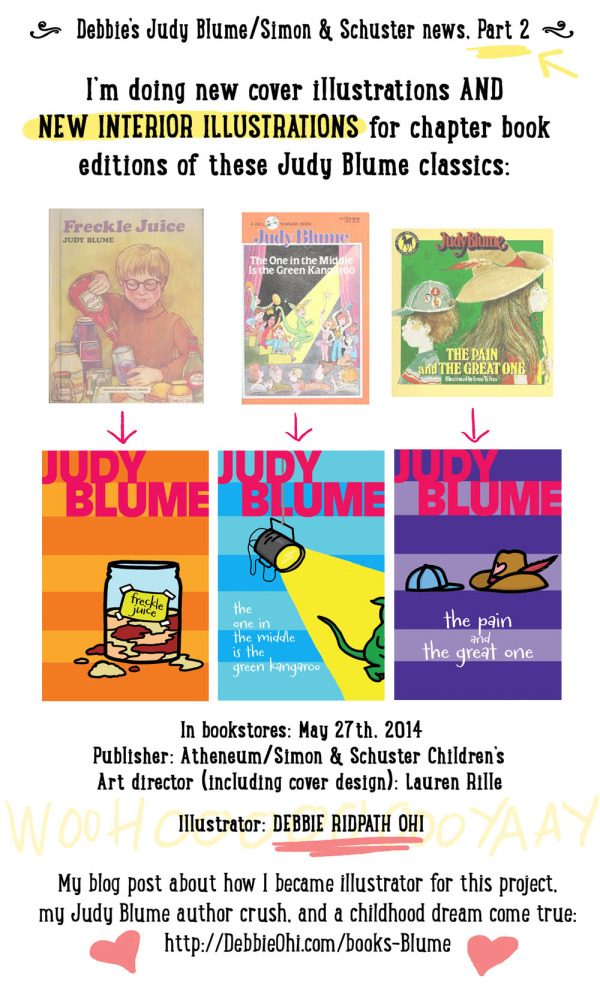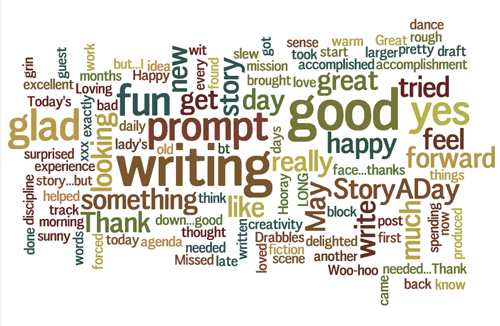Happy Book Birthday to Debbie Ridpath Ohi, whose illustrations are featured in the new paperback editions of Judy Blume’s classic books (yes, Judy Blume!!). The new editions come out today! Today Debbie has supplied us with a visual prompt that made me laugh out loud. What can you do with this?
The Prompt
Debbie Ridpath Ohi writes and illustrates books for young people. Based in Toronto, Debbie is represented by Ginger Knowlton of Curtis Brown Ltd. Her illustrations appear in I’M BORED, a picture book written by Michael Ian Black (Simon & Schuster Books For Young Readers, 2012) and was selected by The New York Times for its list of Notable Children’s Books.
Her upcoming books include NAKED! (by Michael Ian Black, illustrated by Debbie, coming out from S&S in Summer/2014) andWHERE ARE MY BOOKS?, which is written AND illustrated by Debbie (coming out from S&S in Spring/2015). She is currently working with Simon & Schuster Books For Young Readers, Harpercollins Children’s and Random House Children’s Books.







